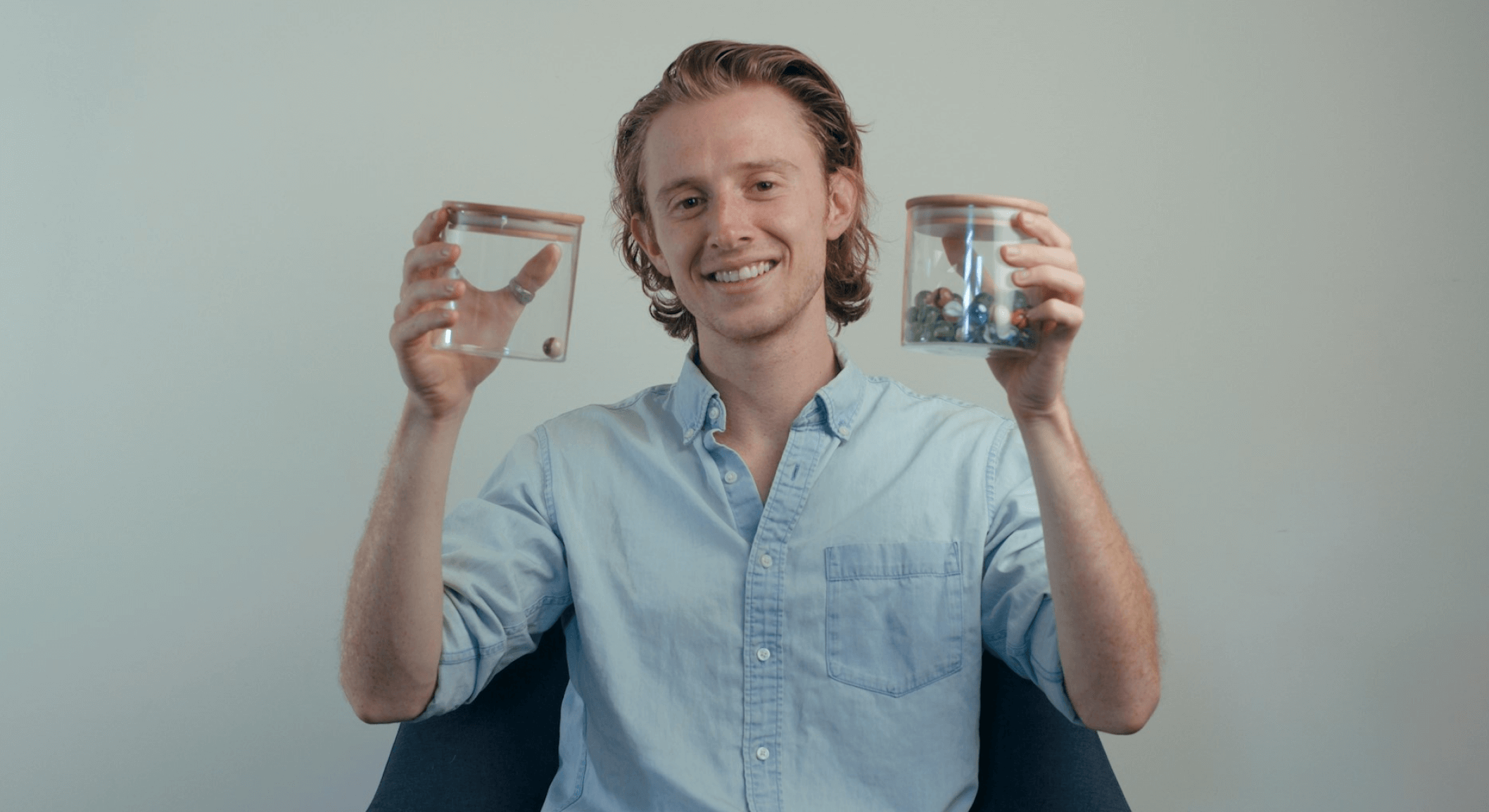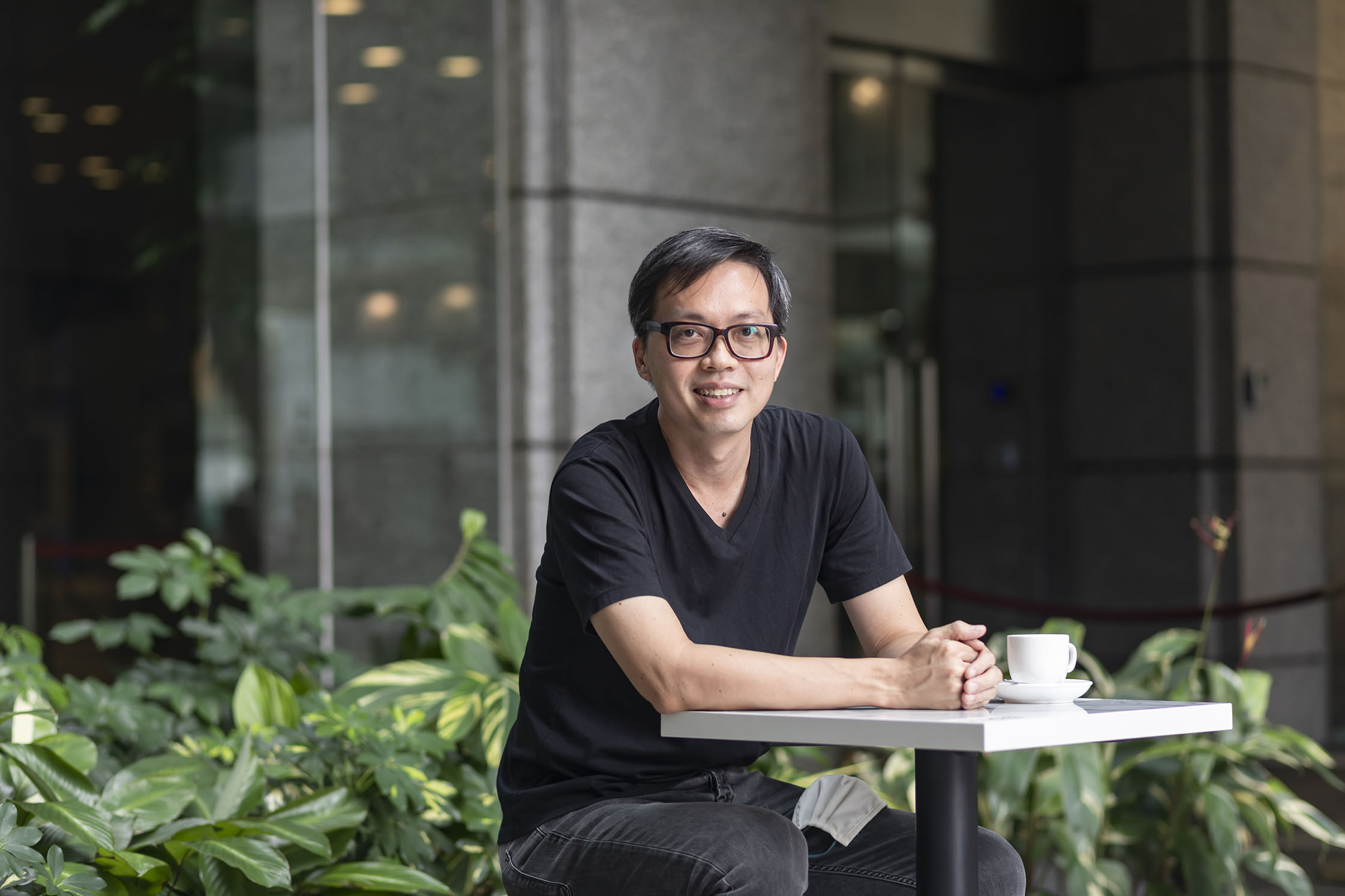Table of contents
- The Archive
- Founder - Daniel Delaway
- Melbourne - Australia
- Started in 2020
- 1 employee
- www.thearchive.io
Hey Dan. Tell us your backstory?
I collect and repair antique books for fun, which people tell me is strange because I'm clearly not 100 years old or retired. Most of my teenage years in fact were spent playing computer games until my eyes glazed over.
Somewhere in my youth, I realised I was pissing my time away and knew nothing about the real world. So, I turned to books and rediscovered my childlike curiosity about the world. I started to become fascinated by science fiction stories, especially the Foundation series by Asimov (who wrote I, Robot) and spent lots of time daydreaming about the future of society and the progression of technology.

I quit gaming, went to university, and studied economics to make my dad happy. He had a more traditional outlook on success. I hated university, it was too rigid, and I knew I would never fit in with everyone else trying to get a corporate job, so I spent most of my time reading science fiction books in the deepest corner of the library I could find. I regret going to university, but coming from a migrant family from Ukraine, not going wasn't an option.
While at university, I got a job working at a secondhand bookstore. There I learnt what happens to homemade autobiographies that are donated. They get put straight into the bin since they're unsellable. I was horrified that so many incredible stories, full of wisdom, could be trashed without a second look.
I started to think about my own grandparents and how little I knew about them and their stories. My grandfather passed away quite suddenly from cancer, leaving my family with nothing in terms of his life story. Thinking I knew something about video making, I decided to interview my grandmother, a holocaust survivor, about her story. The video was so terribly bad, I was too embarrassed to even show her.
I went back to the drawing board, became obsessed with videography and put together a cinematic documentary about her life that our whole family cherishes to this day. I started interviewing people for fun and over time turned it into a business giving everyday people like our parents and grandparents a chance to tell their stories.

Reading so much science fiction at university made me wonder what a perfect future would look like. Where everyone's story could be immortalised forever, and you could listen to the stories of your distant ancestors. That's what led me to start The Archive - I want to create something that future generations can't imagine a world without.
What does your company do?
The Archive gives everyday people a chance to capture a cinematic documentary of their parents' or grandparents' life story at an affordable price in a convenient and future-proof manner.
When you strip away everything we own, all we're left with is our stories. Unfortunately, despite how valuable they are to us, there isn't much choice in terms of how we preserve them for future generations. It's time we caught up and switched our focus to video before these stories are lost permanently.
I want to bridge the gap between an older generation with stories to share and a younger generation that prioritises video content above all else.
How did you come up with the idea?
I envisioned my end product looking like an enormous library of human stories, similar to an Archive of humanity, so I called it The Archive. It took me less than a minute to think of the name. If I have to change it later that's not a problem either, did you know Google used to be called Backrub?

I think a lot of people waste time fussing over the perfect name. If your company is good at what it does people won't think twice about calling it "Microsoft" or "Apple".
Just imagine you didn't know Apple was a billion dollar idea and you were about to start a technology company, and someone at the table yells out Apple - you'd show them the door.
How did you go about building and launching the business?
As trite as it sounds, you really have to love the process. I loved learning about people's stories and whatever niche knowledge they had through their experiences, good or bad, sad or uplifting. I harnessed that passion by creating content for YouTube.
I interviewed frontline nurses, suicide-attempt survivors, sex workers, holocaust survivors, and many more overlooked demographics.
My content was picked up by The Daily Mail, The Australian, and a few other obscure sites. While it was fun and I saw mild success, I was making no money, in fact losing money, and had no aspiration to become a YouTube sensation.
So, I shifted my focus to everyday people and started to get some enquiries. My first paid interview really lit a fire in me that I was onto something big. I decided to go travelling for seven months solo around the world, and make my own stories first before committing to what I knew would be a lifelong pursuit.
I started out in my living room with awful equipment and zero knowledge of film, and now run a fully fledged studio.
How have you grown the business?
Growing a business is an arduous journey, and anyone that's reading this that has ever tried knows just how hard and lonely it can be, especially as a solo founder.
You need to be impatient with action but patient with results. That's what kept the business growing, especially during lockdown which as a non-essential service business forced me to shut down for close to a year.
I wouldn't say I got lucky, I had to work very hard to get where I am today. Luck tends to follow where effort is spent. I did have a few wins that really moved the needle though. My content appeared in some well known media publications, I was awarded a scholarship by the State Library of Victoria, and I had an opportunity to appear on ABC Radio Melbourne. My last hurdle is to one day get on television.
Below is a photo of me loving the process so much I fell asleep after editing for over 8 hours.

What 's your biggest selling service?
What have been some of your biggest failures along the way?
Most of my monumental failures actually came from a previous business I ran when I was younger, which I thankfully didn't repeat for The Archive. From partnering up with the wrong people because I didn't believe in my own abilities to continuing a business that was clearly going nowhere because I couldn't admit that was the reality.
I spent over twenty thousand dollars and four years on that business and never made a cent. As far as a business goes, that's a pretty big failure, but that experience fast-tracked my progress with The Archive.
Most of my failures with The Archive actually stemmed from a lack of specific knowledge. That is, I never studied film. I made videos with my friends for fun and learnt the basics of editing, but when it came to interviewing someone, I had absolutely no idea what I was doing. But it never really mattered. I love learning, and with every video I made, they got progressively better until people were happy to pay for them.
What's next for you and your business?
I've just moved into a new studio with much more room for shooting and the ability to scale up. Since my business was never properly marketed, we're planning a campaign to make people aware that our service exists in the first place. Most people don't even know that an affordable cinematic documentary is an option for their parents or grandparents.
Most people sadly wait until their loved one passes away and tries to organise their photos or journals, which is a very reactive and detached approach to preserving their story.
We want to encourage everyday people to be proactive and capture their story today while they're still able to tell it in the most future-proof method we have at our disposal today - video.
What digital tools do you use regularly?
Trello is a great free tool for organising our flow of enquiries and interviews.
Canva is great for quick design work.
Adobe Premiere Pro is a phenomenal tool for video editing once you get your head around the basics.
I also have to use a tape measure very regularly in the studio.
What books have been a great inspiration to you as a founder?
The Foundation Trilogy - Isaac Asimov
Nightfall - Isaac Asimov
The Forever War - Joe Haldeman
The Almanack of Naval Ravikant - Eric Jorgenson
The Death of Ivan Illyich - Leo Tolstoy
Atomic Habits - James Clear
Any podcasts, websites that help you run your business?
Any quotes you live by?
Be impatient with action but patient with results
“Making money isn't hard in itself, what's hard is to earn it doing something worth devoting your life to.” - Carlos Ruiz Zafon from The Shadow of the Wind.
What do you love and hate about being a founder?
I love that I get to choose what I spend my day doing. Very few of my days are ever the same, which keeps me thinking outside the box and learning new skills I can apply to lots of areas of my life.
I wouldn't say that I hate being a solo founder, but it can get quite lonely spending a lot of time by yourself creating and building with nobody to share the journey with.
What do you do to look after your mental health as a founder?
Honestly, you need to talk. Talk to your friends, your family, and people you know care about your wellbeing.
I'm very fortunate to have a great network of supporters that have been cheering me on since day one. Especially my best friend Leo, who runs his own successful business. We talk about our problems and help each other work through them, and have since we were kids.
Life isn't single-player unless you're living in a forest, so find someone or a group that has your best interests at heart and start talking. You don't even have to take their advice, just talking for the sake of it usually leads to answers. I'm also one of those crazy people that get up at 5:30 to cycle, exercise, sauna, and cold dip into the ocean to start my day; that stuff does wonders.
Adding watching the sunrise into your morning routine is great for your circadian rhythm. Also, don't forget to get enough sleep - I have the mental capacity of a potato with less than 8 hours of sleep.

In a few words, sum up what it means to be the founder of a business.
Being a founder is like playing pinball. At the start, you have no idea what you should be doing or what you should be aiming for, but after enough mistakes, you see a pattern and become an expert.
What are the biggest pieces of advice you’d give to other founders?
Most things you want in life are on the other side of fear. Also, pick up the phone if you want results, email is snail mail.

%20Logo.svg)




